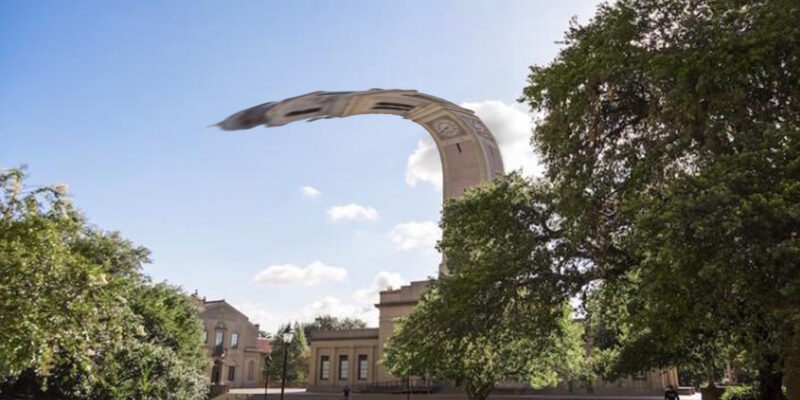(The Center Square) — Records obtained by The Center Square show that Louisiana State University spent more than $2 million in public funds on DEI programs that included scholarships and internships that gave preference to students from “underrepresented minorities or disadvantaged backgrounds.”
Students applying to the School of Allied Health Professionals in Shreveport received tuition waivers for a total of $121,984 for eight students annually. The school is now working to restructure the program to comply with orders from President Donald Trump’s administration.
“Admitted students were eligible to apply and students from under-represented minorities or disadvantaged backgrounds were given preference in the selection process,” the records state.
The waiver application has since been removed from the SAHP website and the school is working with a legal team “to bring this and any future award into compliance with the ‘Dear Colleague’ letter from [the Department of Education].”
SAHP offers undergraduate and graduate programs in fields like cardiopulmonary science, speech-language pathology, audiology, occupational and physical therapy, and counseling, while also providing clinical services and community outreach focused on rehabilitation and disability support.
At LSU Health Shreveport, the Center for Cardiovascular Diseases and Sciences offers two summer research internship programs — Cardiovascular Unique Research Initiative for Undergraduate Students and American Heart the Association’s Supporting Undergraduate Research Experiences. Both programs bring undergraduate students to campus for eight weeks, providing stipends, housing allowances, and hands-on lab experience.
“Both are funded by external grants that included the focus on underrepresented students,” with the CURIOUS program specifically based on funding from the National Institutes of Health that “requires participants to be underrepresented.”
Applicants self-identify whether they meet these criteria, which the NSF defines broadly to include “race, sex, educational background, financial status, disability, [and] former homeless status,” among others.
“The CURIOUS program has been removed from the LSUHS website until determination whether it can be opened to all students while still conforming to the grant requirements (continued funding is pending). Language describing the AHA-SURE program has been updated to remove reference to diversity and underrepresented status, reflecting updates by the [American Heart Association] itself,” the school wrote.
Several of LSU’s DEI initiatives are under review, with longstanding programs across its agricultural and health science campuses significantly altered or eliminated entirely.
At LSU’s School of Medicine, the Office of Diversity and Community Engagement is “supporting, implementing and teaching curricula related to health equity” across both the medical school and its residency programs.
The office also runs several outreach initiatives aimed at “stimulating an interest in science and medicine among local high school and college students,” while devoting about 20% of its efforts to “supporting and advising students who are underrepresented in medicine.”
These initiatives are not just educational — they’re essential for accreditation, as the Liaison Committee on Medical Education requires medical schools to ensure students are trained in “culturally competent health care,” able to recognize health disparities, and prepared to help solve them.
The office has since been renamed to the “Office of Community Engagement and Health Equity.”
The Ag Diversity Initiatives Support Fund, once described as a way for donors to back programs that offered “academic, personal, and professional development opportunities” for underrepresented students in agriculture, has been eliminated entirely.
“Diversity programs and initiatives provide students from underrepresented backgrounds with academic, personal, and professional development opportunities that — combined with their academic studies — positively affect the short- and long-term trajectory of their lives,” the school wrote.
The Council for Diversity, Inclusion, Equity and Change — a body that once served as a liaison between faculty, staff, students, and administrators within the LSU AgCenter and College of Agriculture — has been renamed and repurposed to move away from DEI-focused work.
The council previously gave faculty and students a “formalized structure” for input on matters related to diversity and inclusion across teaching, research, and extension programs.
In the School of Nursing, what was once the Office of Diversity, Equity, and Inclusion has now been retitled the Office of Engagement, with officials stating it is “in the process of opening access.”
The office was intended to “provide programs & services that support the recruitment, admission, retention and graduation of racial and ethnic minority students.”
“The initiatives of this program are integral to the accreditation process by the American Association of Colleges and Nursing,” the school said.
Some programs were discontinued prior to the return of President Donald Trump, such as LSU’s participation in the National Conference on Race and Ethnicity in Higher Education. The program was discontinued in May 2024.
“The conference series constitutes the leading and most comprehensive national forum on issues of race and ethnicity in higher education. This change work is designed to improve racial and ethnic relations and their intersections with other issues and groups on campus. The conference speakers and sessions offer strategies for expanding educational access and success for diverse, traditionally underrepresented populations,” the records said.
Other discontinued programs include “an interactive lunch that shares the cultural foods and history of Juneteenth.”
Not all initiatives in the records provided seem to have anything to do with establishing a more racially or ethnically diverse student demographic.
“The program director for LaPREP will identify up to 30 students who are interested in the fields of Medicine, Research or Allied Health Professions,” the records said. “Students who participate in this activity will gain knowledge and become familiar with the academic and non-academic requirements and expectation to become future physicians, researchers, or allied health professionals. Participants will spend a half-day on our campus.”
Still, the program was amended to “to focus more on the community partnership effort in offering this required student activity for middle schoolers.”
Advertisement
Advertisement

